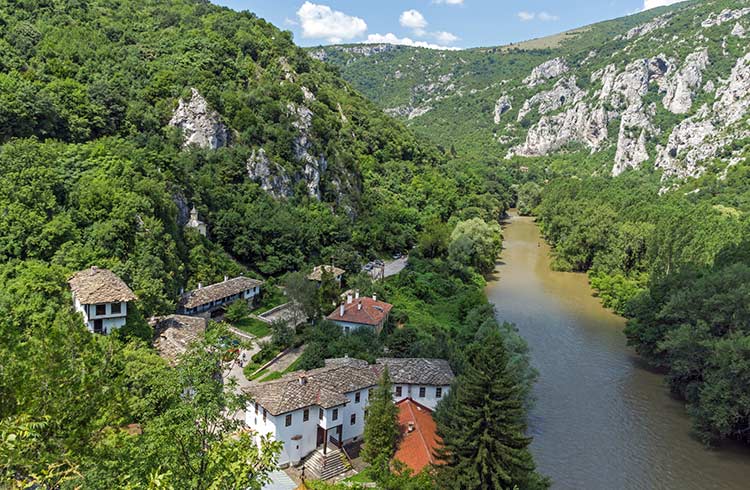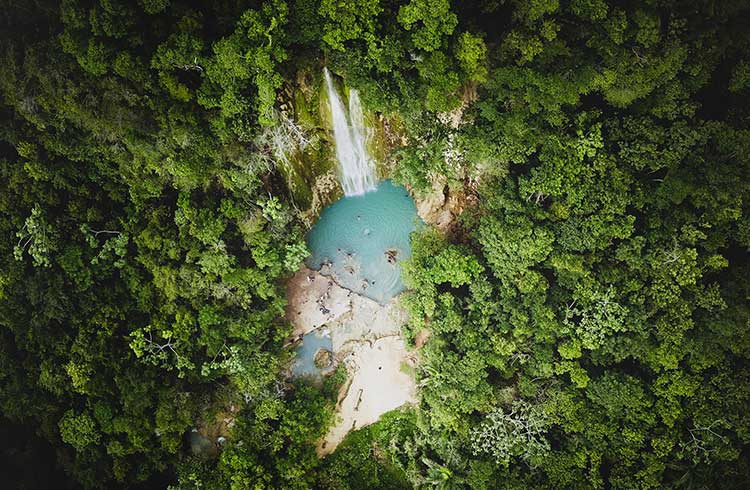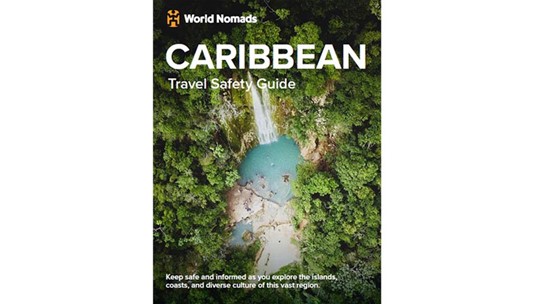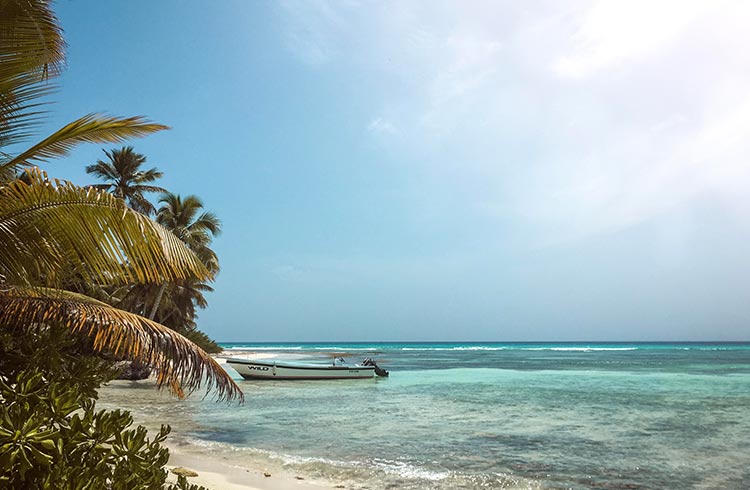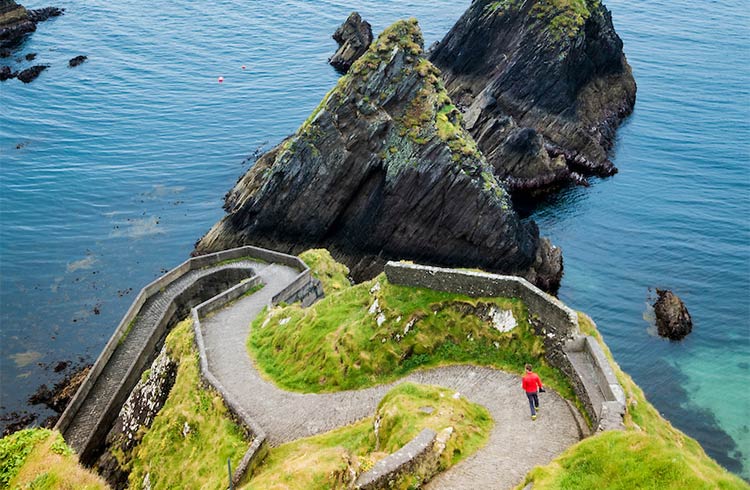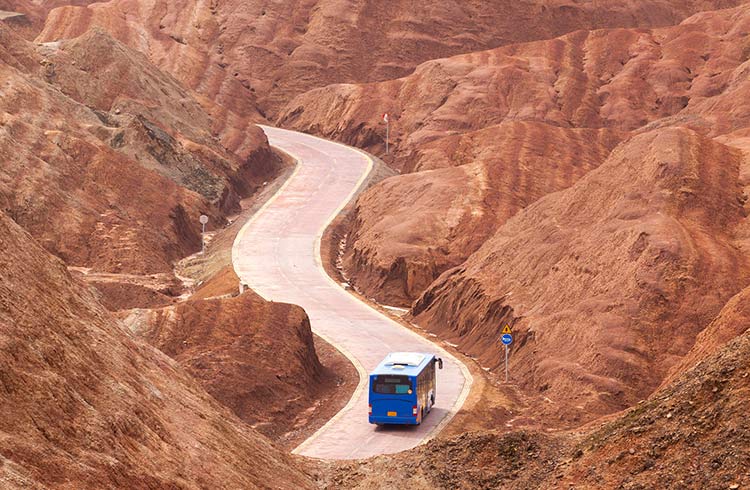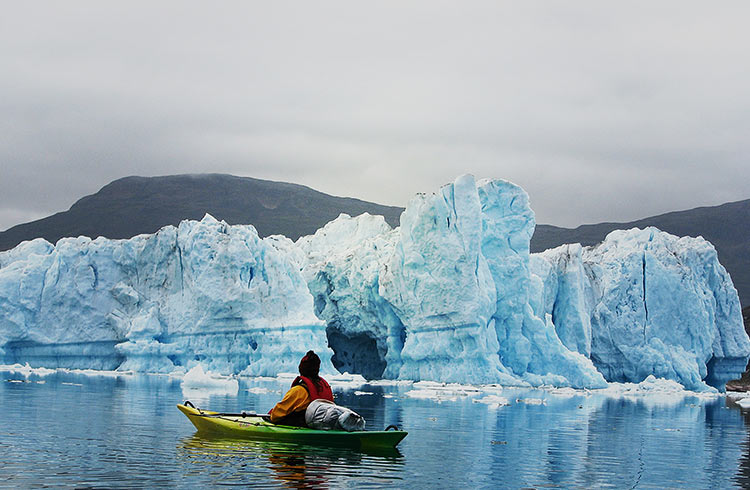Travel insurance for Thailand
Learn how travel insurance could help Canadians if you get sick or injured on your trip to Thailand.
- As featured in:
As featured in:
Thailand welcomes thousands of Canadian travellers each year. Whether you’re checking out the Bangkok nightlife, the water buffalo races in Chonburi or have your sights set on more off the beaten path spots in Thailand like Mu Ko Chang National Park, as nomads ourselves, we’ve had our share of good times in Thailand.
We’ve danced the night away in Ko Pha-Ngan at Thailand’s epic Full Moon Parties, trekked through the jungle, and enjoyed the flavorful local dishes like Khao Soi and Pad Thai. And, we’ve learned a few things along the way and love to share our Thailand travel tips (check out our article: What to know before you go to Thailand).
- Do I need travel insurance for Thailand?
- Travel insurance for activities in Thailand
- Travel insurance for motorbiking in Thailand
- Travel insurance for medical emergencies in Thailand
- Travel insurance for lost bags in Thailand
- Travel insurance for cancelled, interrupted, or delayed trips to Thailand
Do I need travel insurance for Thailand?
When you’re planning your trip to Thailand, there are some things you just can’t foresee. We had a claim from one of our nomads who needed surgery after they broke their leg in Koh Samui. We had another claim from one of our nomads who had a camera stolen on the crowded streets of Khao San Road in Bangkok. These events definitely weren't planned, but a World Nomads travel insurance plan for Thailand could help if you run into trouble on your overseas adventure.
With any overseas travel, there’s always going to be some things you can’t plan for - like cancelled trips, natural disasters, medical emergencies, and delayed baggage. Because of these unforeseen situations, travel insurance should be something you consider. There are different plans to choose from, and when you get a quote you can compare the options to determine the best international travel insurance for your needs.
Travel insurance for activities in Thailand
Your Thailand adventure may take you surfing in Phuket or kayaking the Run Tee River. You may also decide to hike to Tarn Lod Yai - a massive ancient sea cave. World Nomads travel insurance covers more than 250 activities for Canadians travelling to Thailand - including surfing, kayaking, and hiking.
We recommend that you think about the types of adventures and activities you’ll be doing while you’re there. When you get a quote for travel insurance for Thailand, you’ll need to list your planned activities. You won’t be able to add or remove activities after you make your purchase, so make sure you add them all at that time you purchase your policy. If you’re participating in an activity that isn’t listed in your policy wording, you can contact us to determine if you will be covered.
Travel insurance for motorbiking in Thailand
Motorbiking is common in Thailand, and in some instances, it could be covered by your travel insurance policy - but it’s not guaranteed. Just because it’s easy to rent a motorbike there doesn’t mean you should, and it doesn’t mean you’ll be covered.
We get a lot of accident claims from nomads who hop on a motorized bike for the first time in Thailand because it’s cheap and easy to rent. However, safety is not always top priority for other drivers – speed and convenience is. The rules of the road and the road quality itself can be very different from back home in Canada. Motorbike accidents are quite common (it’s one of our most common claims) and it’s very important to know that if you don’t have the proper license for motorbiking, your travel insurance for Thailand won’t cover you.
If motorbiking is something you insist on doing, you’ll need to look at getting the proper license for motorbiking in Thailand before you leave Canada. You can get specific license requirements for Thailand on the Canadian government’s website. You’ll also want to review your policy wording carefully when you get a quote for travel insurance for Thailand.
Travel insurance for medical emergencies in Thailand
Before you leave Canada, consult with your doctor to see if you may need certain vaccinations or antimalarial medication for your trip to Thailand. We also recommend packing a strong mosquito repellent, as this can help protect you from things like dengue fever and malaria.
While these preparations can help, there’s still a chance you could get sick or injured during your travels in Thailand. If you get lunch from a street vendor and get travellers diarrhea or if you're stung by a poisonous jellyfish off Koh Lanta, emergency medical travel insurance could reimburse you for certain medical expenses. Your Government Health Insurance Plan may only pay a small portion, if any, of your medical expenses while you’re in Thailand.
If you get hurt while hiking in a remote jungle in Thailand, you may find limited medical services available. Our 24/7 emergency assistance team will be able to help refer you to a place that offers the level of care that you need. They can also help communicate with your medical team if they don’t speak English or French.
If your doctor determines that it’s best for you to go home to Canada to get medical care, the repatriation coverage that is included in your travel insurance for Thailand may cover the costs to get you there when approved in advance by our medical department.
Travel insurance for lost bags in Thailand
If you’re headed to the beautiful Phi Phi Islands for a beach getaway, you’ve likely packed one (or five) new swimsuits. If you check your bags in Canada, and then realize that the airline lost your bag, the baggage coverage included in your travel insurance for Thailand may reimburse you for the cost to replace your belongings. When you get a quote, you can check the policy wording in your international travel insurance policy to get the specific details on depreciation and policy limits.
If you’re lucky, the bag just took a detour and will eventually make its way to you. Even a delayed bag can be stressful though. If this happens, you could still be reimbursed for a change of clothes and toiletries until you and your bag are reunited.
Travel insurance for cancelled, interrupted, or delayed trips to Thailand
Sometimes you have the perfect getaway planned, but things happen that can cancel, interrupt, or delay your trip.
Thailand is located in an active seismic zone, and there’s the possibility of natural disasters that can affect your travels. If your trip to Krabi is cancelled because an earthquake has destroyed your destination residence or the Canadian Government issues an advisory against travel to the destination, country or region listed on your itinerary (and the advisory is issued after the date you paid for your prepaid travel arrangement and after the date you purchased your policy) , your travel insurance for Thailand could help you be reimbursed for non-refundable tours and hotel accommodations that you paid for in advance.
Travel insurance could also help if you’re already on your trip and something happens. For example, you may need to go back to Canada early if an immediate family member back home has an unexpected medical emergency.
Make sure to keep all documentation and receipts for the non-refundable travel arrangements you paid for in advance- you’ll need those if you make a claim.
Thailand Travel Tips
Before you leave Canada, we encourage you to check out the Canadian government’s safety warnings for Thailand to review their up-to-date warnings on any advisories that may exist at that time.
If you purchase travel insurance for Thailand, it’s also a good idea to save the 24/7 Emergency Assistance phone number and your policy number in your phone so you don’t have to search for that if an emergency happens.
We also recommend saving all receipts and documentation for activities, transportation, and accommodations that you have booked. If you need to make a claim, you’ll need those things.
And finally, take the time to study up on the laws in Thailand before your trip. You won’t be smiling in the land of smiles if you end up in jail. We also suggest you educate yourself on ethical wildlife encounters; you may have opportunities to see exotic animals (elephants, tigers, gibbons, etc.) but you don’t want to contribute to the suffering of these majestic creatures. Never ride an elephant or take selfies with captive animals – doing so only harms their species.
This is only a summary of coverage and does not include the full terms and conditions of the policy. It is important you read and understand your policy as it contains benefits, conditions, exclusions and pre-existing condition exclusions. If you do not understand your coverage, or if you have questions, just ask us.
Travel Insurance Benefits: how we can take care of you
Trip Cancellation
Been working hard for your trip?
We'll work hard to protect it.
Trip Protection
- Unexpectedly hospitalised?
- Travel buddy unfit to travel?
- Close relative suddenly dies?
We’ve got your back.
Emergency Medical Expenses
Feeling fit and healthy? What if you get sick or injured?
Take the pain out of medical or dental costs.
Emergency Medical Insurance
- Need meds quick?
- Accidentally injured?
- Suddenly sick?
We’ve got your back.
Emergency Medical Transportation
Know where the nearest hospital is?
Don’t stress, we’ll get you there quickly.
Evacuation and Repatriation
- Banged up abroad?
- Need a hospital urgently?
- Medivac home?
Help starts here.
Protect your gear
Love photography, filming or sport?
Cover your bags, tech or gear.
Protect your gear
- Passport or tech stolen?
- Airline lost your gear?
- Bags delayed?
Help starts here.
- Emergency Overseas Medical & Dental Expenses
- Emergency Medical Evacuation & Repatriation
- Trip Cancellation or Interruption
- 24-Hour Assistance Services
- Baggage
- And more (depending on your country of residence)
24/7 emergency assistance
Whether you need medical assistance or emergency evacuation, our teams are available 24 hours a day, 7 days a week, 365 days a year before and during your trip.
Are you in need of emergency assistance right now?
Contact the teamTravel insurance for the Caribbean
Essential travel insurance tips
- As featured in:
As featured in:
The Caribbean islands aren’t always paradise. That’s why there’s travel insurance. Here are a few situations that you could encounter and tips on how you can get the most out of your coverage.
Severe Weather
Hurricanes and tropical storms are among the biggest threats of your trip turning upside down. If your flight has been cancelled or your hotel is unable to accept visitors, you may qualify for trip cancellation or interruption benefits. Timing is key here: You need to have bought your plan before the storm was announced. You also won’t be eligible for coverage if you cancel because of a few knocked-down trees or the forecast is cloudy and gray.
Street Crime
Street crime and petty theft, such as pickpocketing and mugging, are unfortunate realities in the Caribbean. Should that happen to you, get to safety first and go to the local authorities to report the incident (don’t forget to get a copy of the report). World Nomads, 24/7 Emergency Assistance team can give you hand with whatever you need in a crisis, such as helping to locate health care facilities or consular services and contacting family members.
If your personal belongings get swiped under your supervision, besides reporting the incident, you’ll also need the original receipts for the items. Your policy may have per-item and maximum limits and exclude coverage of high-value items or cash.
Adventure
The Caribbean feels like a non-stop adventure, from snorkeling in crystal-clear water and trekking amid cloud forests to swimming under cascading waterfalls.
Whatever the activity, it’s important to choose the right level of coverage. Read the policy wording, browse the World Nomads’ Help Center, or contact our customer service team to see if what you’re planning to do is covered under your plan. You may have to pay an additional premium for an adventure sports upgrade or purchase the Explorer plan instead of a Standard.
Certain adventures may also have special conditions and exclusions which, if you don’t comply, could affect your coverage. These could be getting certification for your activity or booking the excursion with a qualified, licensed operator. It could also be as simple as abiding by safety practices, whether or not or they’re a part of the local law.
It’s never a good idea to guzzle multiple frozen daiquiris before scuba diving, or going hiking solo when you’re just a beginner and have a poor sense of direction. Your coverage is contingent upon your responsible behavior. So, best to refrain from anything that would be likely to get you in trouble. Also, be sure to check your policy for exclusions, such as unguided dives or search-and-rescue missions.
Medical Emergencies
Surfing accidents, sunburn and dehydration, food poisoning, or – heaven forbid – an act of violence. Major and minor occurrences can happen in the Caribbean, and believe us, they do…no matter how careful or prepared you think you are.
The first thing to remember is to contact the 24/7 Emergency Assistance team, who will need to approve your surgical procedures, medical treatment, or evacuation before you go forward with them. Otherwise your coverage may be reduced or invalidated.
Remember: Any emergencies due to pre-existing conditions aren’t included unless specified in your policy; and your plan only covers emergencies, not routine or preventative care, such as eyeglass prescriptions and annual physicals.
Travel Insurance Benefits: how we can take care of you
Trip Cancellation
Been working hard for your trip?
We'll work hard to protect it.
Trip Protection
- Unexpectedly hospitalised?
- Travel buddy unfit to travel?
- Close relative suddenly dies?
We’ve got your back.
Emergency Medical Expenses
Feeling fit and healthy? What if you get sick or injured?
Take the pain out of medical or dental costs.
Emergency Medical Insurance
- Need meds quick?
- Accidentally injured?
- Suddenly sick?
We’ve got your back.
Emergency Medical Transportation
Know where the nearest hospital is?
Don’t stress, we’ll get you there quickly.
Evacuation and Repatriation
- Banged up abroad?
- Need a hospital urgently?
- Medivac home?
Help starts here.
Protect your gear
Love photography, filming or sport?
Cover your bags, tech or gear.
Protect your gear
- Passport stolen?
- Airline lost your gear?
- Bags delayed?
Help starts here.
- Emergency Overseas Medical & Dental Expenses
- Emergency Medical Evacuation & Repatriation
- Trip Cancellation or Interruption
- 24-Hour Assistance Services
- Baggage
- And more (depending on your country of residence)
24/7 emergency assistance
Whether you need medical assistance or emergency evacuation, our teams are available 24 hours a day, 7 days a week, 365 days a year before and during your trip.
Are you in need of emergency assistance right now?
Contact the teamTravel Insurance for the Caribbean
From the rainforests to the sea, learn how travel insurance can help Americans traveling to the Caribbean.
- As featured in:
As featured in:
For information relating to policies purchased prior to October 23 2024, please check the Policy Wording provided with your purchase. You can contact us if you need this sent to you again. For plans purchased after October 23 2024, please see below.
At a glance:
- Travel insurance benefits for the Caribbean may include trip cancellation, delay, and interruption
- Coverage for medical emergencies, medical evacuation, and natural disasters while abroad
- Protection for lost, stolen, or delayed baggage and personal belongings
- Coverage for 250+ adventure and sports activities across the Caribbean (snorkeling included)!
- Optional Cancel For Any Reason (CFAR) upgrade for extra flexibility. Additional terms apply
- Do I need travel insurance for the Caribbean?
- Travel insurance for activities in the Caribbean
- Travel insurance for medical emergencies in the Caribbean
- Travel insurance for lost and stolen bags in the Caribbean
- Travel insurance for canceled, interrupted, or delayed trips to the Caribbean
- Tips for traveling to the Caribbean from the United States
Considered to be the picture of paradise, the Caribbean consists of over 7,000 islands, cays, and reefs that have been organized into 30 different territories. The region is famed for its white sandy beaches, blue waters, and laid-back atmosphere. Just a short flight away from many spots in the US, the Caribbean is understandably a popular vacation destination among Americans.
The Caribbean has an adventure for any type of traveler, from thrill seekers to families to honeymooners. You can dive into the region’s cultural heritage at the best museums in the Caribbean, move your hips while learning salsa in Havana, visit a rum distillery in Jamaica, be serenaded by soulful Caribbean music, savor spicy seafood dishes, and attend colorful cultural festivals like Junkanoo in the Bahamas. Outdoor lovers can climb La Soufrière, St. Vincent’s active volcano, mountain bike in Trinidad and Tobago, and scuba dive in Cuba.
While a trip to the Caribbean is a fun adventure, there are some things to be aware of when you’re visiting from the US. We’ve learned quite a bit from our travels, and we encourage you to explore travel insurance* plans for the Caribbean.
Do I need travel insurance for the Caribbean?
International travel can bring all kinds of unexpected surprises - like finding a waterfall in the Piton Mountains in St. Lucia.
Some surprises are not as great though. Nobody wants to think about things like canceled trips, delayed baggage, and medical emergencies, but these things can happen unexpectedly. If you fall and twist your ankle while climbing Blue Mountain Peak in Jamaica, you may then wish that you had travel insurance for the Caribbean.
World Nomads has four plans to choose from, and when you get a quote you can compare the options to determine the best international travel insurance for your needs.
Travel insurance for activities in the Caribbean
In a region defined by the surrounding sea, you’ll likely do a few water sports during your vacation in the Caribbean. Perhaps you want to go sailing around the Bahamas, scuba diving in Antigua, or sea kayaking along the Waitukubuli Sea Trail in Dominica. The region also offers plenty of land adventures across rainforests, volcanoes, and waterfalls. World Nomads covers more than 250 activities for Americans traveling to the Caribbean and includes things like hiking Mount Liamuiga on St. Kitts and horseback riding through Vinales National Park in Cuba.
Before you get a quote for your travel insurance for the Caribbean, it’s helpful to have a general itinerary in mind. Different plans cover different activities. A list of activities will help you choose the best insurance for your trip—and make sure even your most daring adventure is covered.
For example, if you want to go kitesurfing in Turks & Caicos or climb one of the pitons on St. Lucia, you’ll be covered under all plans, including the Standard Plan. However, if you’re planning to ditch the scuba gear and go free diving in Bonaire, you’ll need to invest in an Explorer or an Epic Plan.
Travel insurance for medical emergencies in the Caribbean
Accidents can happen to anyone. Maybe you have a surfing accident while catching waves in Puerto Rico or something goes wrong while you are scuba diving. Most Americans diving in the Caribbean have no problems at all, but sometimes things happen. If you get decompression sickness, emergency medical coverage under your travel insurance for the Caribbean could reimburse you for your medical expenses.
In case you have a medical emergency when traveling to the Caribbean, you can call the 24/7 Emergency Assistance team and they can help refer you to a place that offers the level of care that you need. Not all islands are English-speaking so the team they can also help communicate with your local medical team if there are language barriers.
If your attending physician (and the 24/7 emergency assistance team) determines that it’s best for you to go home to the US to get medical care, the repatriation coverage that is included in your travel insurance for the Caribbean may cover the costs to get you there.
The Caribbean sun is strong, so pack sunscreen and don’t be shy about reapplying it. Since you’ll likely be spending a lot of time in the water, look into reef-safe sunscreens. Food and water sanitation are quite good on many islands—and the tap water is drinkable in many places too. However, as the region is quite vast, we encourage you to do some research on your specific destination ahead of time.
To streamline your experience seeking medical treatment in the Caribbean, we recommend signing up for our Portable Health Record non-insurance service. This service allows your documents, prescriptions, test results, and emergency contacts to be accessible in one place, anywhere in the world. Whether you need to refill a prescription or deal with a more serious injury, this service can expedite the process.
Travel insurance for lost and stolen bags in the Caribbean
What happens if you land in Nassau, but your bag doesn’t arrive at the same time? You probably packed your favorite swimsuit and maybe your snorkeling gear as well. Your travel insurance for the Caribbean may reimburse you for a change of clothes and toiletries until your bag makes its way to you.
If you’re lucky, your bags just took a detour and will eventually make their way to you. Even a delayed bag can be stressful though. If your bag is delayed for 12 hours or more, you may still be reimbursed for a change of clothes and toiletries until you and your bag are reunited.
The first step is to contact the airline. If the airline isn’t able to help you locate your lost bag, the second step is to contact the Delayed or Lost Baggage Tracking and Delivery service, which is another of our non-insurance service partners. Make sure to have the file reference or record locator number and Property Irregularity Report on hand when you call so you can file a lost luggage claim.
Safety varies across the region. Many of the islands are incredibly safe and you’ll likely encounter no issues. Other spots experience theft or other crimes, and you’ll want to be aware of your belongings, such as in cities and touristy areas like Montego Bay and Kingston, Jamaica.
If anything does happen, make sure you make a police report. You’ll need it to make a claim.
Travel insurance for canceled, interrupted, or delayed trips to the Caribbean
Even if you’ve booked all your hotels and excursions, it’s smart to plan for the unpredictable. Things happen that can cancel, interrupt, or delay your trip so it’s important to find an insurance plan that covers trip cancelation and delays.
Natural disasters are a real possibility in the Caribbean, which is located in the Atlantic Hurricane Belt and at risk for hurricanes from June to December. Many Caribbean countries are also on active fault lines, meaning earthquakes are also a possibility. If an unforeseen hurricane sweeps through Antigua before your trip making it impossible to reach your destination, your travel insurance for the Caribbean could help you be reimbursed for non-refundable tours and hotel accommodations that you paid for in advance. World Nomads insurance plans may also help you out if a storm makes your accommodation uninhabitable. It’s important to note though that travel insurance is for unexpected events; to be covered, you must have purchased your plan before the storm was known about or named.
If you’re already on your trip and something happens, travel insurance can also help you out. For example, you may need to go back to the United States early if an immediate family member back home has an unexpected medical emergency. You may be eligible for reimbursement of expenses if your trip is interrupted.
The Explorer and Epic Plans cover several travel inconveniences that may arise during your Caribbean vacation if you purchased during the time sensitive period. You might be on a cruise around the Caribbean Islands and your port call at the Cayman Islands gets canceled due to a storm. World Nomads travel insurance may compensate you for this inconvenience.
Tips for traveling to the Caribbean from the United States
The Caribbean Islands are known for their laid-back, friendly vibes and are well-accustomed to travelers. Like any international destination, though, there are things to look out for.
Before you leave head off on your adventure, we encourage you to check out the US government’s travel warnings for each country you plan to visit. Weather, safety, and political situations can change at any time, and this is where they list any current advisories.
The Caribbean is famed for its natural beauty and it’s important to do our part as travelers to help preserve its sea, national parks, and abundant environment. Explore environmentally friendly excursions, like these eco-adventures on Dominica. You may also want to check out our tips on how to travel responsibly in the Caribbean and some tips for eco-conscious travelers.
A long history of trade and movement of people, food, and goods through these islands has created a vibrant, multicultural region. French, English, Spanish, and Creole are among the languages spoken across the islands. Read up on some of the region’s dynamic history before you head off—and don’t forget to kick back and enjoy!
*All information we provided here is a brief summary. It does not include all terms, conditions, limitations, exclusions, and termination provisions of the plans described. Please carefully read your state specific plan documents for a full description of coverage. Travel insurance is included as part of your travel protection plan which contains both insurance benefits and non-insurance assistance services. Material included on this page does not represent, nor is it specific to, United States Fire Insurance Company or travel insurance benefits provided on United States Fire Insurance Company’s travel protection plans.Travel Insurance Benefits: how we can take care of you
Trip Cancellation
Been working hard for your trip?
We'll work hard to protect it.
Trip Protection
- Unexpectedly hospitalised?
- Travel buddy unfit to travel?
- Close relative suddenly dies?
We’ve got your back.
Emergency Medical Expenses
Feeling fit and healthy? What if you get sick or injured?
Take the pain out of medical or dental costs.
Emergency Medical Insurance
- Need meds quick?
- Accidentally injured?
- Suddenly sick?
We’ve got your back.
Emergency Medical Transportation
Know where the nearest hospital is?
Don’t stress, we’ll get you there quickly.
Evacuation and Repatriation
- Banged up abroad?
- Need a hospital urgently?
- Medivac home?
Help starts here.
Protect your gear
Love photography, filming or sport?
Cover your bags, tech or gear.
Protect your gear
- Passport stolen?
- Airline lost your gear?
- Bags delayed?
Help starts here.
- Emergency Overseas Medical & Dental Expenses
- Emergency Medical Evacuation & Repatriation
- Trip Cancellation or Interruption
- 24-Hour Assistance Services
- Baggage
- And more (depending on your country of residence)
24/7 emergency assistance
Whether you need medical assistance or emergency evacuation, our teams are available 24 hours a day, 7 days a week, 365 days a year before and during your trip.
Are you in need of emergency assistance right now?
Contact the team